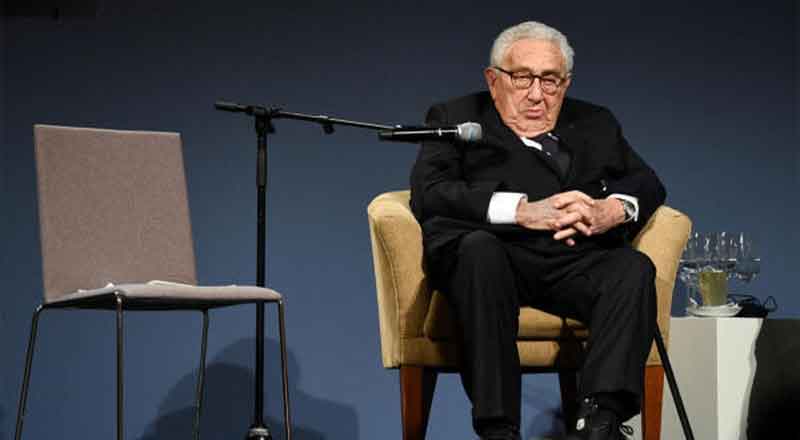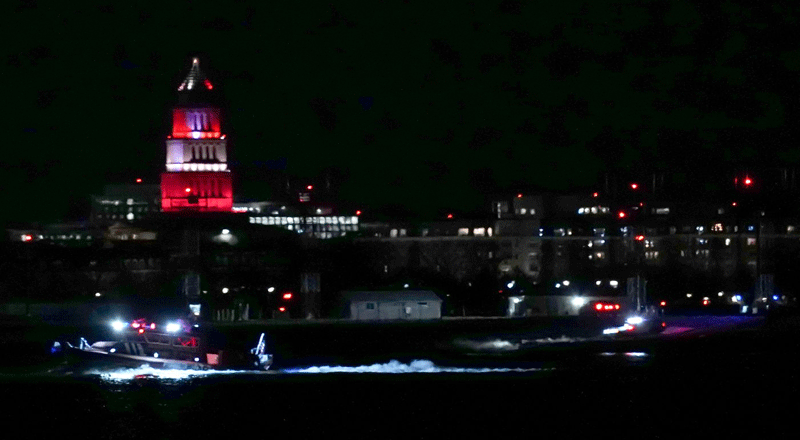- Henry Kissinger, a controversial Nobel Peace Prize winner and diplomatic powerhouse whose service left an indelible mark on U.S. foreign policy, died on Wednesday.
- In the 1970s, he had a hand in many of the epoch-changing global events of the decade while serving as secretary of state under Republican President Richard Nixon.
- In the India-Pakistan War of 1971, Henry Kissinger was heavily criticized for tilting toward Pakistan.
- Kissinger’s reign as the prime architect of U.S. foreign policy waned with Nixon’s resignation in 1974. Still, he continued to be a diplomatic force under President Gerald Ford.
- While many hailed Kissinger for his brilliance and broad experience, others branded him a war criminal for his support for anti-communist dictatorships, especially in Latin America.
Henry Kissinger, a controversial Nobel Peace Prize winner and diplomatic powerhouse whose service under two presidents left an indelible mark on U.S. foreign policy, died on Wednesday, according to Kissinger Associates Inc. Kissinger died at his home in Connecticut, Kissinger Associates said.
Kissinger had been active past his centenary, attending meetings in the White House, publishing a book on leadership styles, and testifying before a Senate committee about the nuclear threat posed by North Korea. In July 2023 he made a surprise visit to Beijing to meet Chinese President Xi Jinping.
In the 1970s, he had a hand in many of the epoch-changing global events of the decade while serving as secretary of state under Republican President Richard Nixon. The German-born Jewish refugee’s efforts led to the diplomatic opening of China, landmark U.S.-Soviet arms control talks, expanded ties between Israel and its Arab neighbors, and the Paris Peace Accords with North Vietnam.
Kissinger’s reign as the prime architect of U.S. foreign policy waned with Nixon’s resignation in 1974. Still, he continued to be a diplomatic force under President Gerald Ford and to offer strong opinions throughout the rest of his life.
While many hailed Kissinger for his brilliance and broad experience, others branded him a war criminal for his support for anti-communist dictatorships, especially in Latin America.
His 1973 Peace Prize – awarded jointly to North Vietnam’s Le Duc Tho, who would decline it – was one of the most controversial ever. Two members of the Nobel committee resigned over the selection and questions arose about the U.S. secret bombing of Cambodia.
Voluble on policy, Kissinger was reticent on personal matters, although he once told a journalist he saw himself as a cowboy hero, riding off alone.
Heinz Alfred Kissinger was born in Furth, Germany, on May 27, 1923, and moved to the United States with his family in 1938 before the Nazi campaign to exterminate European Jews. Anglicizing his name to Henry, Kissinger became a naturalized U.S. citizen in 1943, served in the Army in Europe in World War Two, and went to Harvard University on scholarship, earning a master’s degree in 1952 and a doctorate in 1954. He was on Harvard’s faculty for the next 17 years.
In 1973, in addition to his role as national security adviser, Kissinger was named secretary of state – giving him unchallenged authority in foreign affairs. An intensifying Arab-Israeli conflict launched Kissinger on his first so-called “shuttle” mission, a brand of highly personal, high-pressure diplomacy for which he became famous.
In the India-Pakistan War of 1971, Nixon and Kissinger were heavily criticized for tilting toward Pakistan. Kissinger was heard calling the Indians “bastards” – a remark he later said he regretted. Like Nixon, he feared the spread of left-wing ideas in the Western hemisphere, and his actions in response were to cause deep suspicion of Washington from many Latin Americans for years to come.
Divorced from his first wife, Ann Fleischer, in 1964, he married Nancy Maginnes, an aide to New York Governor Nelson Rockefeller, in 1974. He had two children by his first wife.
(With Inputs from agencies)





